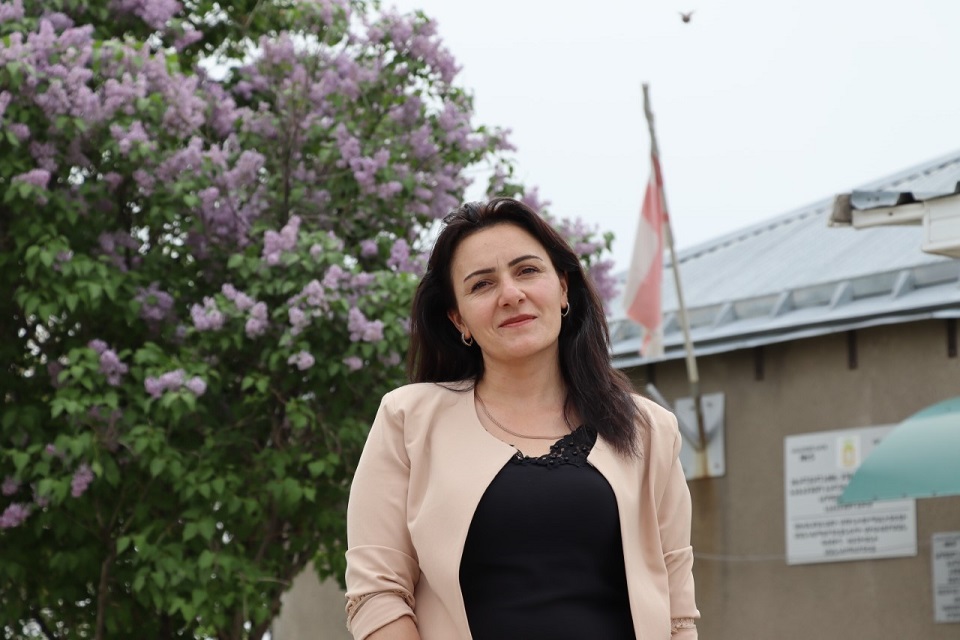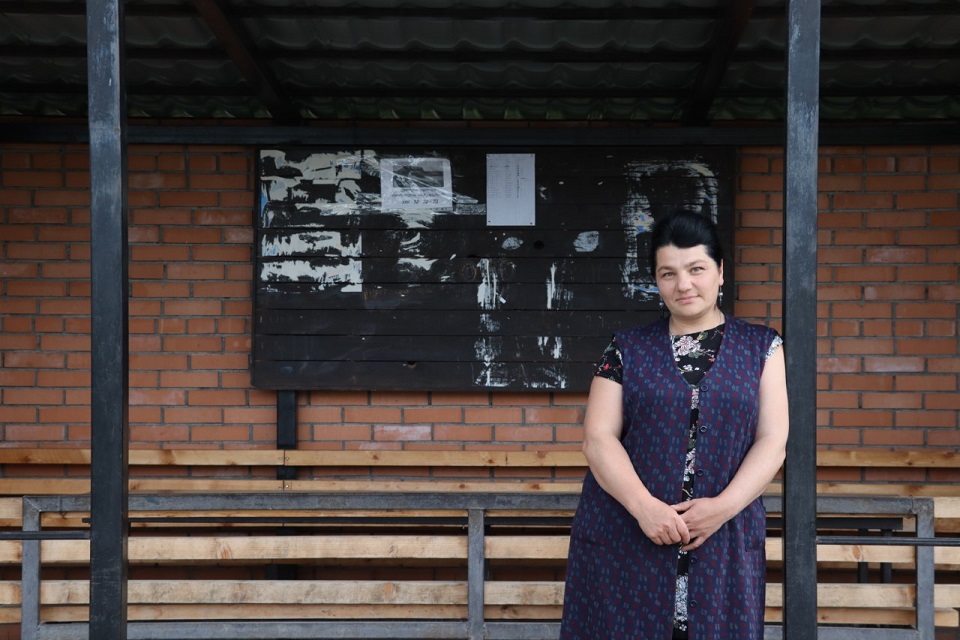Rural women’s leadership for positive change
Since 2019, UN Woman and Taso Foundation have been using social mobilization techniques to bring positive changes to the everyday lives of rural women in Georgia and their communities in the southern region of Samtskhe-Javakheti. Women in leadership positions who have acquired knowledge and confidence, have since taken the first steps towards successful careers and are now involved in decision-making processes, and they have been improving ever since.
Date:

“I have been trying to bring the problems of local women and children to the attention of decision-makers,” stated Karine Kachotyan, a member of the Akhalkalaki sakrebulo (municipal assembly).
Karine Kachotyan is one of just 45 female majoritarian sakrebulo members in Georgia, making them a small minority among the 664 municipal assembly members across the country.
After her husband died, Karine returned from Armenia with her son to her home village of Vachiani, in the Akhalkalaki municipality. To make ends meet, she started stockbreeding and farming, but following advice from her fellow villagers, she later found work as a cook at a local kindergarten and began to bake on commission.
In 2019, Karine heard about the latest project launched by UN Women and Taso Foundation. She immediately became involved, joining other women from her community as a regular participant in meetings organized by the local self-government.
“Community mobilization gave me self-assurance, helped me develop my skills and gave me the desire to express myself and fight for what I want. I understood that I, too, could contribute to the well-being of my son, my family and my community,” Karine recalls.
Life can be challenging for women in Samtskhe-Javakheti’s high-mountainous villages, with its scarce infrastructure, harsh climate and pervasive stereotypes. As a result, women’s participation in improving community life and advancing positive role models is very important – just as Karine has been doing.
With the project’s support, the 30-year-old Armenian-speaking single mother joined certain training programmes, learnt Georgian, completed a computer course and gained her driver’s license.
As an active leader in her community, Karine was also invited to participate in local elections in 2021. “I decided I would do what was best for my son and me,” she noted. “I accepted the offer and won a seat. Now I am trying to bring the problems of local women and children to the attention of decision-makers.”
Alongside her activity in the sakrebulo, Karine also works as the acting principal of her local kindergarten. She is still focused on self-development, and plans on taking further steps towards advancing her career.

“Everybody has grown assured that women can bring important changes,” noted Tamar Shubitidze, manager at the Sviri Village Youth Center and Library.
When Taso Foundation began working in Sviri village in the Akhalkalaki municipality in 2019, only a few women showed any interest. Among them was Tamar Shubitidze, who was later elected as a community worker by the members of a self-help group.
“Initially, we did not believe that everything being initiated by the project would actually be carried out,” the 39-year-old mother of three recalls. “Local residents looked at us suspiciously at first, but as time went by the results we reaped ignited interest in others as well. Everybody saw that we, as women, are capable of positive change, and more women expressed their desire to join us.”
Now acting as a community worker in two villages, Sviri and Boga, and leading three self-help groups, Tamar’s work has helped local women collaborate with the local government.
After specific training, these women carried out local needs assessments and presented their findings to the municipal assembly. The results are already plain to see – today Sviri and Boga have new bus stops, crucial in a region with a harsh climate and scarce transport infrastructure. In addition, the central highway has been repaired, and a youth center, a kindergarten and a library have all been built.
Tamar additionally manages the youth center and library. As a community leader, she has already collaborated with several non-governmental organizations. She actively disseminates information about the services available to victims of domestic violence and other critical issues, and now she acts as a role model and motivates many other women.
“This project helped me develop. I am more daring now. I love to be this active and live a full life,” Tamar adds. “I have this urge to stand side by side with other women and to empower them.”
The Social Mobilization Initiative is a part of the UN Women “Women’s Economic Empowerment in the South Caucasus” project, carried out by Taso Foundation, the Kakheti Regional Development Foundation and CARE Caucasus, with financial support from the Swiss Agency for Development and Cooperation (SDC), the Austrian Development Cooperation (ADC) and the Government of Slovakia.